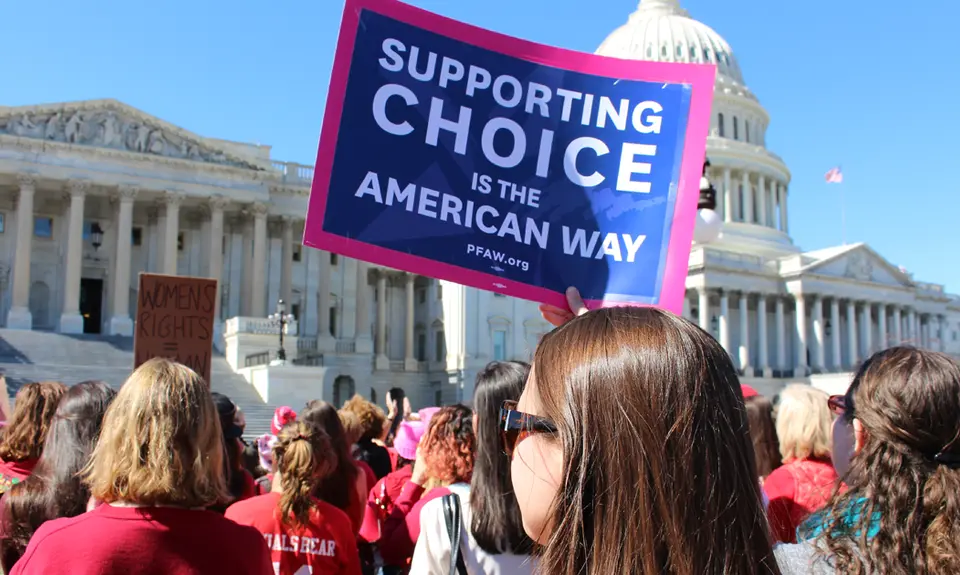“Confirmed Judges, Confirmed Fears” is a blog series documenting the harmful impact of President Trump’s judges on Americans’ rights and liberties. Cases in the series can be found by issue and by judge at this link.
Some or all of Trump’s Sixth Circuit judges Amul Thapar, John Bush, Joan Larsen, John Nalbandian, Chad Readler, and Eric Murphy cast deciding votes in an unsigned order to bypass completely a three-judge panel and to have the full court take the “extraordinarily disfavored” step of initially considering an appeal of a lower court decision that struck down a restrictive state abortion law, a district court ruling that has already been severely criticized by Judge Thapar. The April 2021 order was in Bristol Regional Women’s Center v. Slatery.
As explained in an earlier PFAW blog entry, a federal district judge nominated by President Reagan conducted a four-day trial and issued a permanent injunction against a Tennessee law that he ruled imposed an unconstitutional “undue burden” on women seeking an abortion by requiring them to submit to a 48-hour waiting period and other burdensome procedures. The state appealed and sought an immediate stay of the district court ruling. Judge Karen Nelson Moore, joined by George W Bush nominee Helene White, denied the stay in February 2021, but Trump judge Thapar harshly dissented. Thapar claimed that the state was “likely to prevail,” and the ruling denying a stay was so egregious that it warranted “immediate correction by our court or a higher court” or “initial hearing” by the full Sixth Circuit “on the merits.”
In fact, the state followed one of Thapar’s suggestions, and without any explanation, the full Sixth Circuit issued an order in April that the full court would grant its motion and hear the initial appeal by the state “on the merits” without following the usual procedure of a three-judge panel issuing a complete ruling on the case, and then considering whether to rehear the case. Although the order does not list which judges formed a majority of the sixteen judges on the court, since six of the 16 judges on the court dissented, and with 4 non-Trump judge who could have been in the majority of at least 9 judges, then at least five of the six Trump judges on the court must have voted for the procedure ordered by the majority of the full court.
Sicth
Judge Moore, joined by Judge White and four other judges, strongly dissented. Moore began by explaining that even in cases that are not “ideologically charged” like this one, such “procedural hopscotch” is “extraordinarily disfavored” under federal statues and rules of procedure, including the full court’s own rules.
The majority’s decision, Moore continued, “lacks a principled basis” and “damages the reputation of this court.” “Encouraged” by Thapar’s dissent, she went on, the state “unabashedly sought to avoid panel review of the merits” in this controversial abortion case “because they dislike the panel’s composition” – including Judges Moore and White as well as Thapar – “and the panel’s resolution of the stay motion” – in which Moore and White denied a stay by a 2-1 vote. The arbitrary and unexplained decision of the full court to “endors[e]” this effort, Moore wrote, strongly suggests that “there are judges on this court,” perhaps even a majority, “who will always side” with restrictive government practices “on the issue of abortion and will upend standard practice to do so.” The court “could have sent a message affirming this court’s impartiality and independence,” Moore lamented, but the “majority declined.”
Although the April ruling made possible by Trump Sixth Circuit judges was not itself on the merits of Tennessee’s restrictive law, the order and Moore’s dissent strongly indicate that the full court will overturn the district court decision and uphold the law. Unfortunately, there are currently no vacancies on the Sixth Circuit. But the issues raised in this case are likely to come before other federal courts, and it is critical to our fight for our courts that President Biden and the Senate promptly fill present and future vacancies with fair-minded judges with a demonstrated commitment of justice, equality, and fundamental rights for all.
